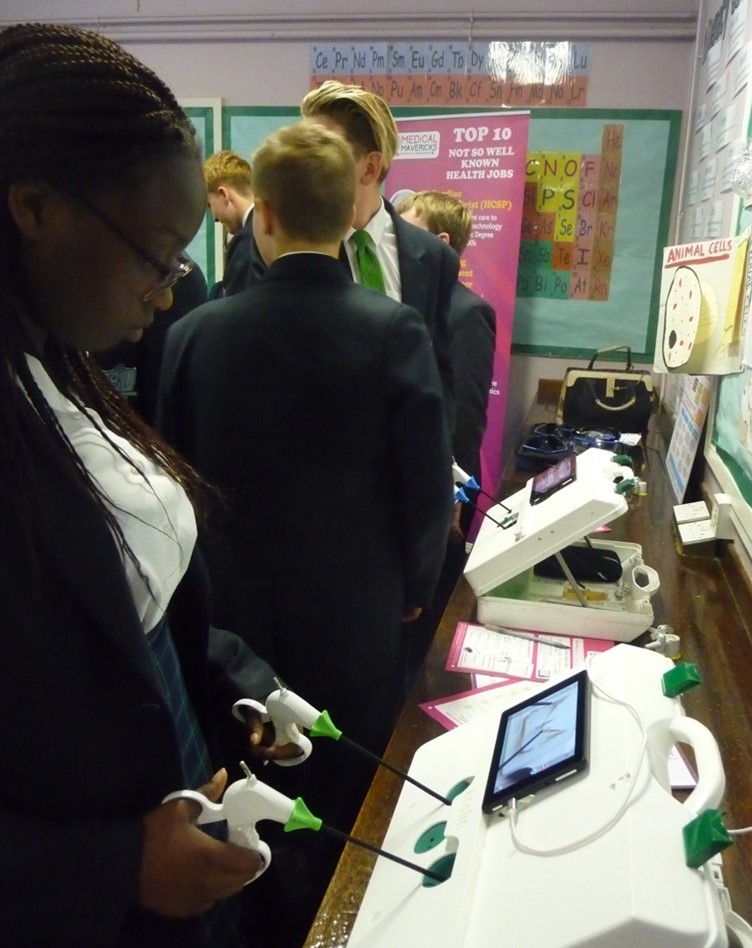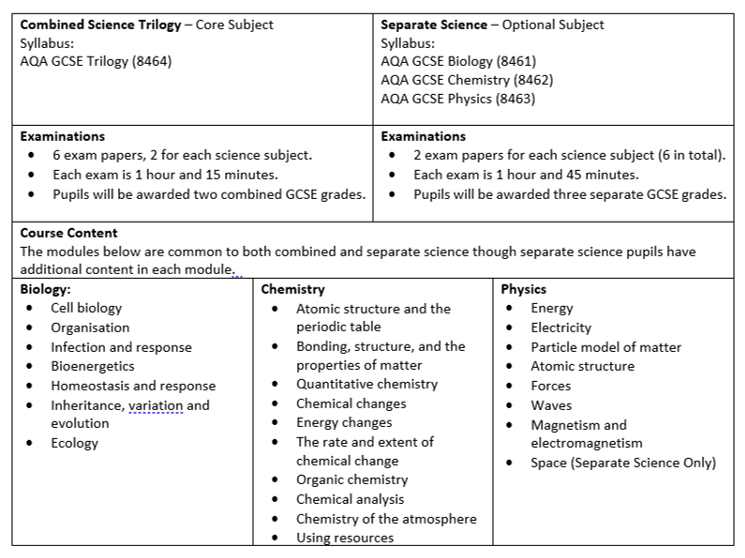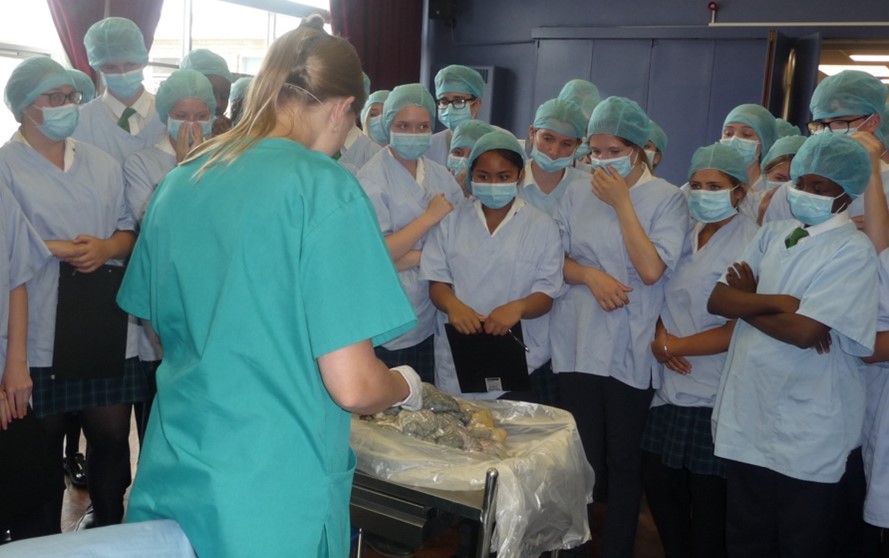“The important thing is to never stop questioning.” - Albert Einstein

Curriculum Intent
Our Commitment to Inspiring the Scientists of the Future
This simple yet profound statement encapsulates the essence of scientific curiosity. They remind us that questioning is not only the beginning of knowledge but also the key to unlocking discoveries. By encouraging out students to continually ask “why” and see answers, we pave the way for innovation and progress.
At OLSB we believe that Science has something to offer every pupil and suits pupils of all abilities and aspirations.
Our ambition is to develop pupils’ experience and knowledge of learning science from primary school and to equip them with the scientific skills required to understand the uses and implications of science, today, their future lives, studies or work.
Children are naturally curious, and we encourage this inquisitive nature throughout their time with us and beyond, In order to achieve this, the curriculum provides the foundations for understanding the world through the specific disciplines of biology, chemistry and physics.
Through engaging in these activities all pupils are encouraged to develop their imagination and understanding by applying scientific understanding to observed phenomena through measurement, investigation, analysis and evaluation. Pupils are able to effectively communicate these key scientific concepts, using the correct terminology.
The Science curriculum provides opportunities to construct written and oral arguments for and against scientific topics which are affecting the current issues in the world. This in turn, equips pupils with the skills necessary to leave OLSB and to pursue Science at sixth form college, University, or as part of a high-quality career.
Key Stage 3 Curriculum
Science at Key Stage three covers the national curriculum and provides the foundations for key stage four. The focus of teaching at Key stage three aims to:
- Develop a deeper understanding of a range of scientific ideas in the subject disciplines of biology, chemistry and physics.
- Enable pupils to see the connections between these subject areas and become aware of some of the big ideas underpinning scientific knowledge and understanding.
- Encourage pupils to relate scientific explanations to phenomena in the world around them and start to use modelling and abstract ideas to develop and evaluate explanations.
Pupils are taught that science is about working objectively, modifying explanations to take account of new evidence and subjecting results to peer review. ‘Working scientifically' is taught throughout year 7,8 &9. Literacy and numeracy are developed through use of scientific vocabulary, including the use of scientific nomenclature and units and mathematical representations.
 Key Stage 4 Curriculum
Key Stage 4 Curriculum
All pupils study Science at Key Stage 4, there are two routes available to pupils. Combined Science is a double award qualification called Science Trilogy. Pupils study the three scientific disciplines of Biology, Chemistry and Physics and receive two GCSE grades averaged across their performance in each discipline. Upper band pupils have the option to study each Science discipline as a separate subject attaining three separate GCSE grades, one in each science subject. This is an excellent route for pupils who which to study science in greater depth. Pupil's opting for the separate science route will cover more content in each unit and provide a broader foundation for those who which to go on to study A-Level sciences. The table below provides an outline of the combined science and separate science GCSE courses.

 Progression Routes
Progression Routes
Pupils who enjoyed studying GCSE Science have gone on to study A-Levels in subjects such as Biology, Human Biology, Chemistry, Physics, Engineering, Psychology or other Level 3 qualifications such as BTEC Nationals in Science, Engineering, Health & Social Care, Horticulture and Sports Science. For those not going directly into post-16 education, GCSE Science is a highly valued qualification by many employers because it encourages both academic and practical thinking, analytical and evaluative skills.
Future Careers
GCSE Science opens the doors to a wide range of careers including Agriculture, computing, engineering, environmental science, historic research and preservation, horticulture, marine science, medical and healthcare, veterinary, food science, beauty therapy sciences, sport and exercises sciences, pharmacy services, polymer technology, chemical engineering, manufacturing, dentistry, dental technology, laboratory and associated technical activities or clinical laboratory support.
.PNG)
.PNG)
.PNG)